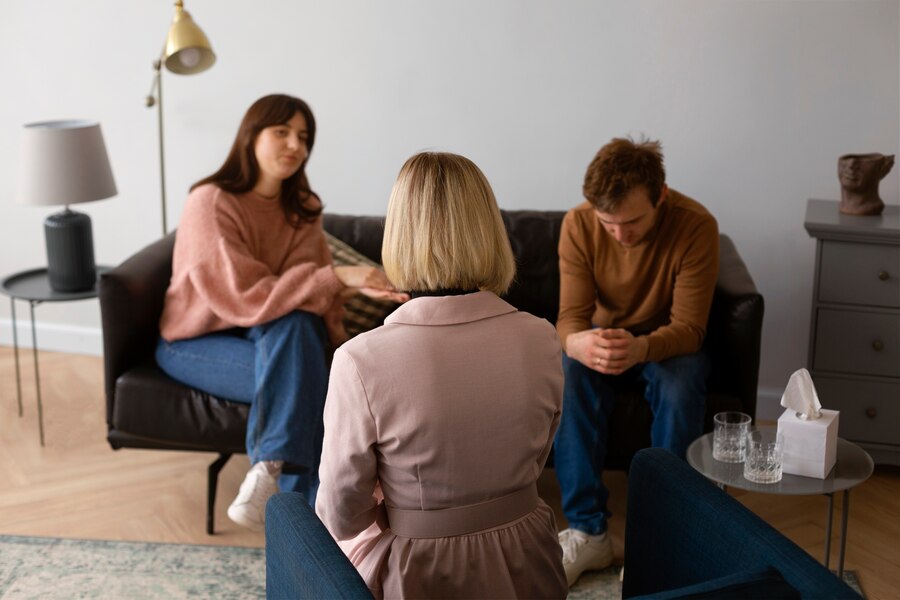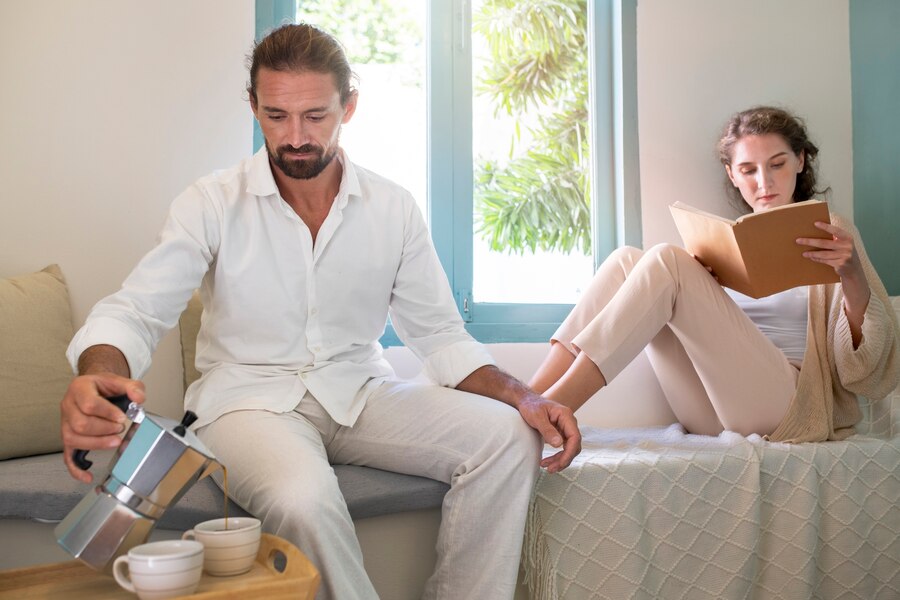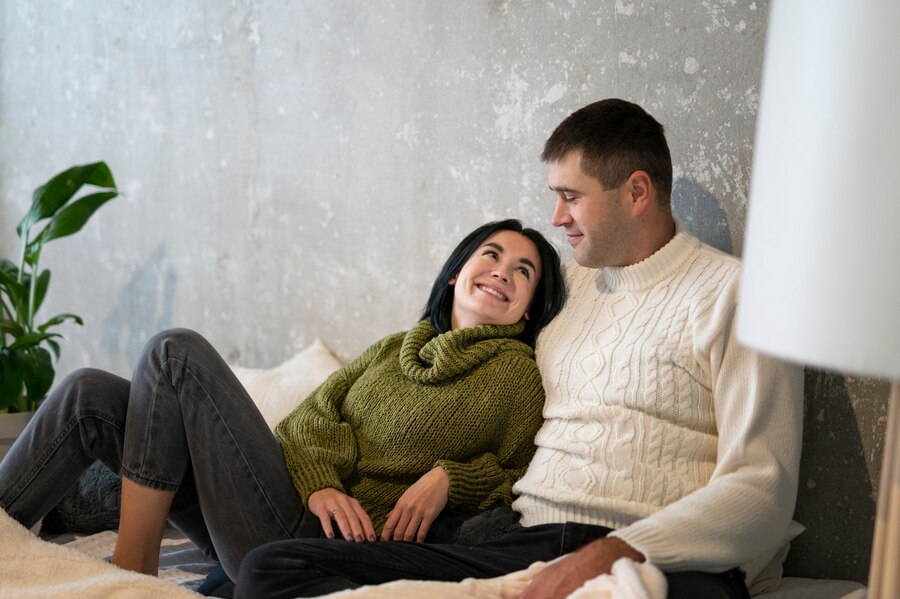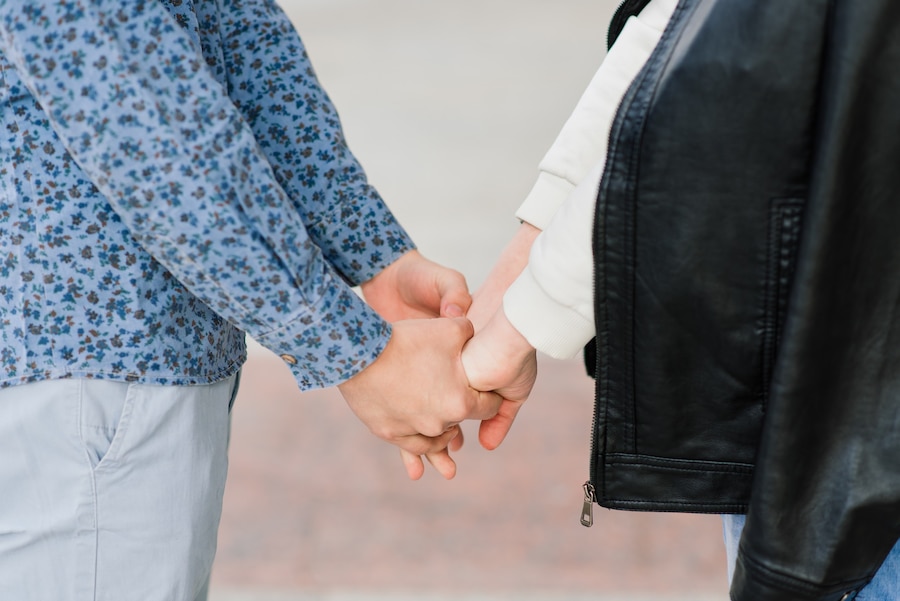In the realm of addiction recovery, the journey to sobriety is often viewed through an individualistic lens. However, what happens when addiction entangles not just one person, but a couple? The ripple effects of substance abuse extend beyond the individual, infiltrating relationships and family dynamics. For couples facing the challenges of addiction together, the path to recovery can seem even more daunting. This is where couples rehabilitation steps in, offering a unique and powerful solution.
At Couples Rehabs, the focus is on healing not just the individual, but the relationship as a whole. This approach acknowledges that addiction is a multifaceted issue that impacts both partners and requires a collaborative effort to overcome. Couples rehabilitation centers provide tailored treatment programs that address the complexities of addiction within the context of a relationship. By fostering an environment of mutual support, understanding, and shared goals, these programs pave the way for couples to rebuild their lives together.
In this article, we will explore the importance of couples rehabilitation, the various treatment approaches employed, and the challenges couples may face on their journey to wholeness. Through understanding and addressing these elements, we can appreciate the transformative power of joint recovery and how it can lead to a stronger, healthier partnership. Join us as we delve into the world of couples rehabs and discover how, together, we can overcome addiction and achieve lasting recovery.
The Importance of Couples Rehabilitation
Couples rehabilitation is a specialized approach to addiction treatment that recognizes the interwoven nature of romantic relationships and substance abuse. When addiction infiltrates a relationship, it doesn’t just affect the individual struggling with substance use; it permeates every aspect of the partnership, causing emotional, psychological, and sometimes even physical harm. The importance of couples rehabilitation cannot be overstated, as it addresses the unique challenges faced by partners who are both struggling with addiction or where one partner’s addiction significantly impacts the other. This section explores the multifaceted reasons why couples rehabilitation is crucial for achieving lasting recovery and restoring harmony within relationships.
Understanding Addiction in Relationships
Addiction is often referred to as a family disease because its impacts extend far beyond the individual. In relationships, addiction can create a toxic cycle of codependency, enabling behaviors, and escalating conflict. Understanding addiction in the context of a relationship involves recognizing how each partner’s actions and reactions can either contribute to or hinder recovery. For instance, one partner may unknowingly enable the other’s addictive behaviors by providing financial support or making excuses for them, thereby perpetuating the cycle of addiction. Couples rehabilitation helps partners understand these dynamics, enabling them to break free from harmful patterns and foster a healthier, more supportive relationship environment.
The Impact on Family Dynamics
The repercussions of addiction resonate throughout the family unit, affecting not just the couple but also their children, extended family, and close friends. Addiction can lead to neglect, emotional instability, and a breakdown of familial roles and responsibilities. Children, in particular, may suffer from a lack of attention, inconsistent parenting, and emotional distress. Couples rehabilitation aims to restore balance within the family by addressing the specific ways in which addiction has disrupted family dynamics. Through family therapy sessions and educational programs, couples can learn to rebuild their family structure, create a stable home environment, and provide the support their children need to heal from the trauma of addiction.
Benefits of Joint Recovery
Joint recovery offers numerous benefits that individual treatment programs may not provide. When couples undergo rehabilitation together, they can work on their personal recovery while simultaneously strengthening their relationship. Key benefits of joint recovery include:
- Enhanced Communication: Couples therapy sessions teach partners how to communicate more effectively, fostering a deeper understanding and empathy for each other’s experiences.
- Mutual Support: Recovering together allows partners to support each other through the challenges of sobriety, creating a shared sense of accountability and encouragement.
- Rebuilding Trust: Trust is often severely damaged in relationships affected by addiction. Joint recovery provides a structured environment for rebuilding trust through transparency, honesty, and consistent, positive behaviors.
- Holistic Healing: Couples rehabs often incorporate holistic healing practices that address the physical, emotional, and spiritual needs of both partners, promoting overall well-being and resilience.
- Long-term Success: Studies have shown that couples who undergo rehabilitation together have higher rates of long-term recovery success. The shared commitment to sobriety and the strengthened bond between partners can serve as powerful motivators for maintaining a substance-free life.
In conclusion, the importance of couples rehabilitation lies in its comprehensive approach to treating addiction within the context of a relationship. By addressing the unique challenges faced by couples and providing the tools necessary for joint recovery, couples rehabs pave the way for healthier, more fulfilling partnerships and a brighter future for the entire family.
Treatment Approaches in Couples Rehabs
Couples Rehabs in Orange Coutny offer a unique and comprehensive approach to recovery that acknowledges the intertwined nature of addiction and relationships. These specialized programs are designed to address both individual and relational aspects of substance abuse, providing a supportive environment where couples can heal together. This section delves into the various treatment approaches utilized in couples rehabs to foster lasting recovery.
Individual and Joint Therapy Sessions
One of the cornerstones of couples rehabs is the integration of both individual and joint therapy sessions. Individual therapy allows each partner to explore their personal struggles, triggers, and underlying issues contributing to addiction. This personalized attention ensures that the root causes of substance abuse are addressed, paving the way for meaningful change.
Joint therapy sessions, on the other hand, focus on the relationship dynamics. These sessions provide a safe space for couples to communicate openly about their experiences, emotions, and challenges. Therapists guide couples in developing healthy communication strategies, resolving conflicts, and rebuilding trust. By working together in therapy, couples can gain a deeper understanding of each other’s perspectives and strengthen their emotional bond.
Holistic Healing Practices
Couples rehabs often incorporate holistic healing practices to complement traditional therapy. These practices recognize that recovery is not just about abstaining from substances but also about achieving overall well-being. Holistic approaches may include mindfulness meditation, yoga, art therapy, and nutritional counseling.
Mindfulness meditation and yoga help couples reconnect with their bodies and minds, promoting relaxation and stress reduction. Art therapy provides a creative outlet for expressing emotions and processing experiences. Nutritional counseling ensures that couples are nourishing their bodies with healthy foods, which can significantly impact mood and energy levels. By addressing the physical, emotional, and spiritual aspects of recovery, holistic healing practices contribute to a more balanced and sustainable recovery journey.
Support Groups and Community Building
Support groups are an integral part of the recovery process in couples rehabs. These groups offer a sense of community and shared understanding, providing a platform for couples to connect with others who are facing similar challenges. Support groups can be specifically for couples or include a mix of individuals working on their recovery.
In these groups, couples can share their experiences, offer encouragement, and gain insights from others’ journeys. The sense of camaraderie and belonging can be incredibly motivating, helping couples to stay committed to their recovery goals. Additionally, community-building activities such as group outings, workshops, and social events reinforce the importance of healthy relationships and mutual support.
Couples rehabs also emphasize the importance of family involvement. Family therapy sessions may be incorporated to address broader family dynamics and facilitate healing within the family unit. This comprehensive approach ensures that recovery is not an isolated effort but a collective journey towards wholeness.
In conclusion, the treatment approaches in couples rehabs are multifaceted, addressing both individual and relational aspects of addiction. Through a combination of individual and joint therapy sessions, holistic healing practices, and support groups, couples are equipped with the tools and support they need to overcome addiction together. By fostering open communication, trust, and community, couples rehabs pave the way for sustainable recovery and a healthier, more fulfilling relationship.

Overcoming Challenges Together
Navigating the path to recovery as a couple presents unique challenges that require a united front. Overcoming these hurdles not only strengthens the bond between partners but also lays the groundwork for a lasting and meaningful recovery. In this section, we’ll explore some of the most common challenges faced by couples in rehab and the strategies employed to conquer them together.
Dealing with Relapse
Relapse is often considered a part of the recovery journey rather than a failure. For couples, however, it can be particularly disheartening. When one or both partners relapse, it can trigger feelings of guilt, blame, and disappointment. To address this, couples rehabs emphasize the importance of understanding relapse as a potential learning experience rather than a setback.
Therapists work with couples to identify triggers and develop coping mechanisms tailored to their unique relationship dynamics. By learning to recognize early warning signs and implementing preemptive strategies, couples can better manage the risk of relapse. Building a robust support system, including counselors, support groups, and even family members, offers additional layers of accountability and encouragement.
Rebuilding Trust and Communication
Addiction often erodes the fundamental pillars of a relationship—trust and communication. Rebuilding these elements is a crucial yet challenging aspect of joint recovery. Couples rehabilitation programs incorporate specialized therapy sessions aimed at restoring trust and improving communication skills.
Through exercises such as active listening, partners learn to express their thoughts and feelings openly and honestly. Trust-building activities, guided by experienced therapists, help couples to slowly rebuild the confidence that may have been lost during the addiction phase.
Moreover, therapeutic techniques like Emotionally Focused Therapy (EFT) are utilized to address underlying emotional wounds and foster a deeper connection. By understanding each other’s vulnerabilities and learning to provide mutual support, couples can strengthen their emotional bond and enhance their resilience against future struggles.
Creating a Sustainable Recovery Plan
A sustainable recovery plan is essential for long-term success and well-being. Couples rehabs work with partners to create individualized plans that align with their shared goals and values. These plans often include setting realistic and achievable milestones, both as a couple and individually.
A critical component of a sustainable recovery plan is establishing a balanced lifestyle that incorporates physical, emotional, and mental well-being. This may involve regular exercise, healthy eating, mindfulness practices, and continued participation in therapy and support groups.
Additionally, couples are encouraged to explore new hobbies and activities that they can enjoy together, fostering a positive and fulfilling shared experience. Creating a structured daily routine helps in maintaining stability and reduces the likelihood of falling back into old habits.
Finally, ongoing education about addiction and recovery is vital. Couples are provided with resources and tools to continuously learn and grow, ensuring they remain informed and prepared to handle any future challenges. By committing to a lifelong journey of recovery and self-improvement, couples can build a resilient and thriving partnership.
In summary, overcoming challenges in couples rehabilitation requires dedication, mutual support, and a willingness to grow together. By addressing relapse, rebuilding trust and communication, and creating a sustainable recovery plan, couples can navigate the complexities of addiction recovery and emerge stronger, healthier, and more unified.
Couples Rehabs’ Journey to Wholeness
In the journey to overcoming addiction, couples rehabilitation offers a unique and powerful approach. By addressing the complexities of addiction within the context of a relationship, couples rehabs provide a dual pathway to healing that not only focuses on individual recovery but also nurtures the relationship itself.
The importance of couples rehabilitation cannot be overstated. Addiction often weaves itself deeply into the fabric of a relationship, affecting family dynamics and creating an environment of mistrust, pain, and dysfunction. By committing to joint recovery, couples can confront these issues head-on, supporting each other through the process and emerging stronger and more united.
Treatment approaches in couples rehabs are multifaceted, combining individual and joint therapy sessions to tackle personal and relational aspects of addiction. Holistic healing practices offer a comprehensive way to address physical, emotional, and spiritual needs, while support groups and community-building activities ensure that couples do not feel isolated in their journey.
Overcoming challenges such as relapse, rebuilding trust, and creating a sustainable recovery plan is no small feat. However, with the right tools and support, couples can navigate these obstacles together. They learn to communicate more effectively, rebuild their trust, and establish a healthy, sustainable lifestyle that supports long-term sobriety.
In conclusion, couples rehabilitation is not just about overcoming addiction; it’s about rediscovering love, trust, and commitment in a relationship. By embarking on this journey together, couples can find wholeness and a renewed sense of partnership, proving that together, they can overcome even the most daunting challenges.

- FAQ: What is the journey to wholeness at Couples Rehabs? Answer: The journey to wholeness at Couples Rehabs is a comprehensive treatment program designed to support couples struggling with addiction. It involves personalized therapy, counseling, and evidence-based treatments to help couples overcome substance abuse and rebuild their relationship.
- FAQ: How does Couples Rehabs’ approach differ from traditional rehab centers? Answer: Couples Rehabs’ approach differs from traditional rehab centers by offering specialized programs that focus on the unique dynamics of couples facing addiction. It provides couples therapy, relationship counseling, and support to address both individual and relationship challenges.
- FAQ: What types of therapies are offered during the journey to wholeness at Couples Rehabs? Answer: The journey to wholeness at Couples Rehabs includes a range of therapies such as individual therapy, couples therapy, group therapy, behavioral therapies, holistic approaches, and experiential therapies. These therapies are tailored to meet the specific needs of couples in recovery.
- FAQ: How long does the journey to wholeness at Couples Rehabs typically last? Answer: The duration of the journey to wholeness at Couples Rehabs can vary depending on the unique circumstances of each couple. It can range from 30 to 90 days or longer, providing the necessary time for couples to heal, recover, and develop healthy coping mechanisms.
- FAQ: What makes Couples Rehabs’ treatment programs effective in helping couples overcome addiction? Answer: Couples Rehabs’ treatment programs are effective in helping couples overcome addiction because they address both individual and relationship issues. By providing a supportive and understanding environment, couples can learn healthy communication, rebuild trust, and develop coping strategies together.
- FAQ: How can the “Together We Overcome” philosophy at Couples Rehabs support couples on their journey to wholeness? Answer: The “Together We Overcome” philosophy at Couples Rehabs emphasizes the importance of mutual support and shared goals in the recovery process. It encourages couples to work together, build resilience, and celebrate milestones as they overcome addiction and journey towards wholeness.
- FAQ: Are there specialized programs for LGBTQ+ couples at Couples Rehabs? Answer: Yes, Couples Rehabs offers specialized programs for LGBTQ+ couples. These programs provide a safe and inclusive environment, understanding of unique challenges faced by LGBTQ+ couples, and culturally competent care to support their journey to wholeness.
- FAQ: Can Couples Rehabs provide aftercare support for couples completing their journey to wholeness? Answer: Yes, Couples Rehabs provides aftercare support for couples completing their journey to wholeness. This includes ongoing therapy, relapse prevention planning, support groups, and access to resources that can help couples maintain long-term recovery and a healthy relationship.
- FAQ: How can couples access the journey to wholeness program at Couples Rehabs? Answer: Couples can access the journey to wholeness program at Couples Rehabs by reaching out to their admissions team. They will guide couples through the intake process, assess their needs, and create a personalized treatment plan.
- FAQ: Does Couples Rehabs accept insurance for their treatment programs? Answer: Yes, Couples Rehabs accepts insurance for their treatment programs. They work with a variety of insurance providers to help couples maximize their benefits and access the care they need on their journey to wholeness.















Recent Comments